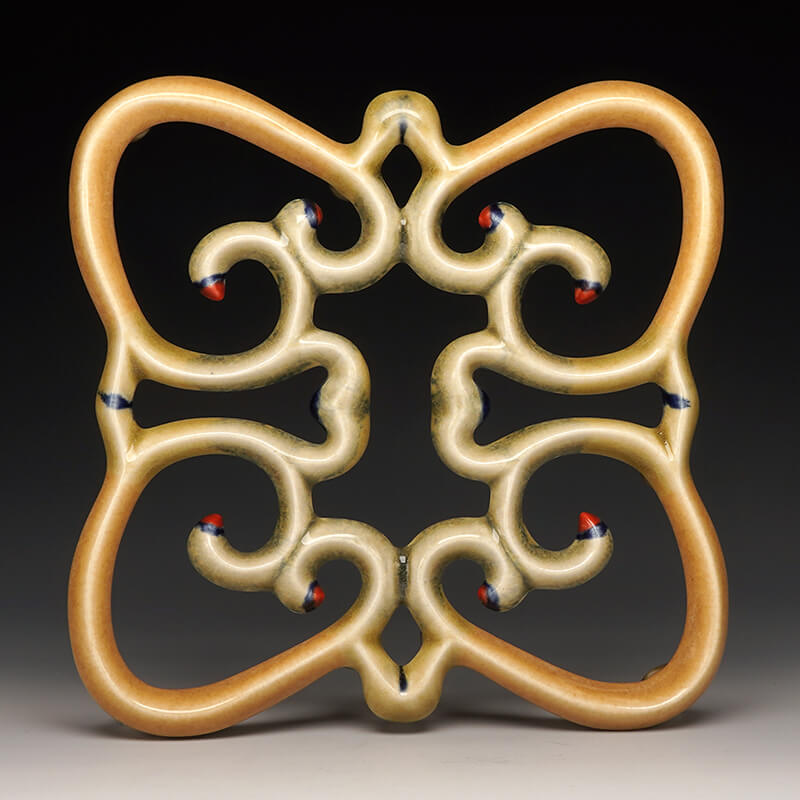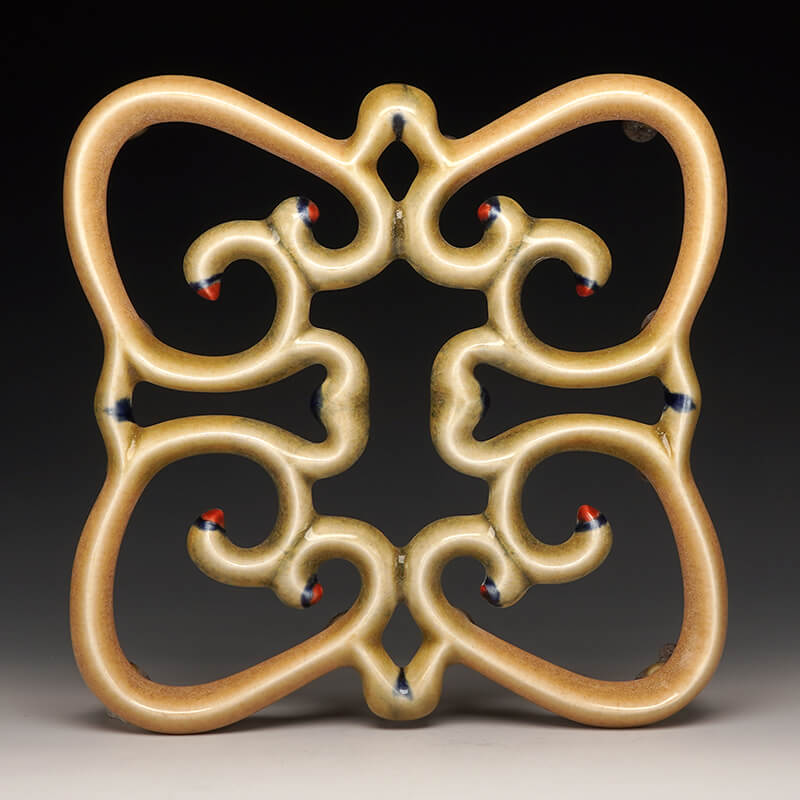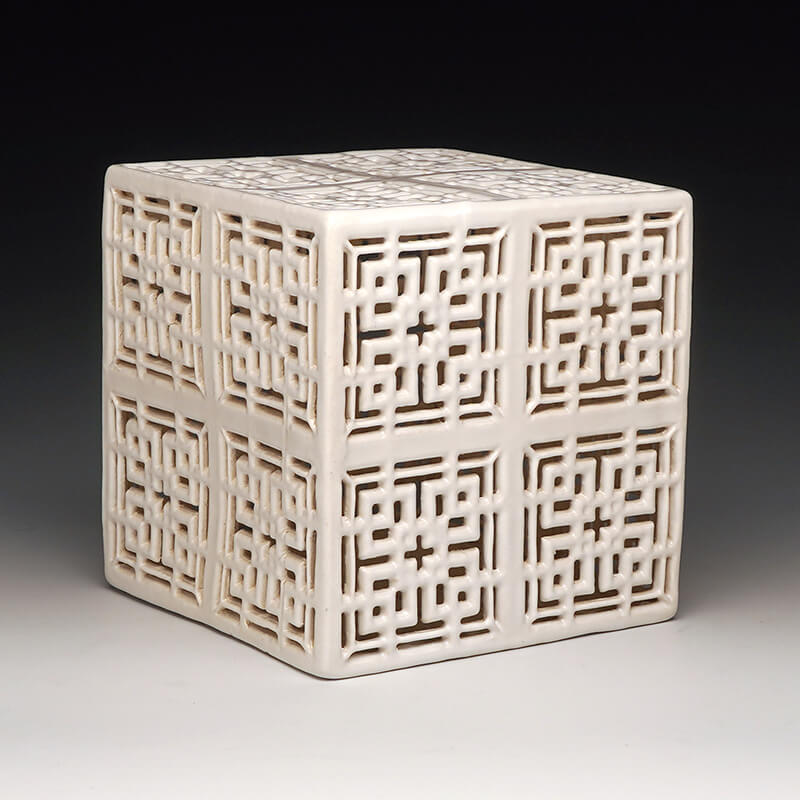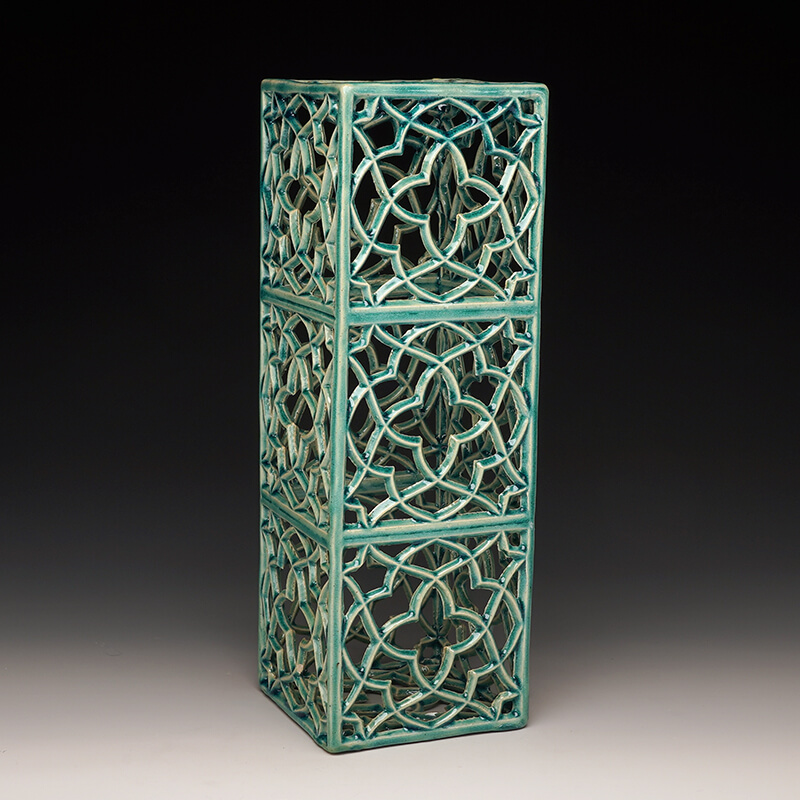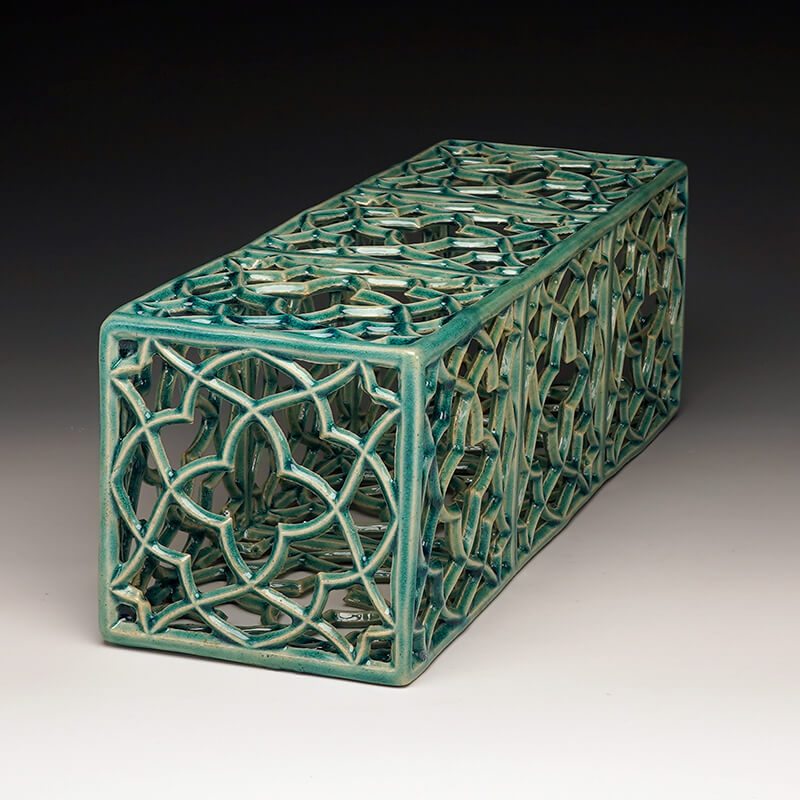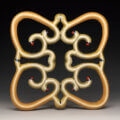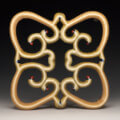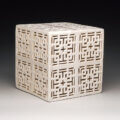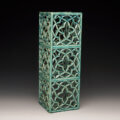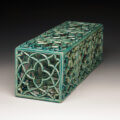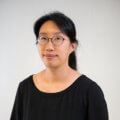
Eliza Au is an artist working in clay using digital fabrication techniques. She earned her MFA from the New York State College of Ceramics at Alfred University and her BFA from the Nova Scotia College of Art and Design. Au has shown her work nationally and internationally, including at: the Appalachian Center for Craft (Smithville, TN; 2021); the Taiwan Ceramic Biennale, (New Tapei City, Taiwan; 2020), and the Korean International Ceramic Biennale (Icheon, Korea, 2019). She has previously attended residencies at the European Ceramic Work Center (Hertogenbosch, NL), the Archie Bray Foundation for the Ceramic Arts (Helena, MT), Greenwich House Pottery, and recently received a McKnight Artist Fellowship to attend a residency at the Northern Clay Center (Minneapolis, MN) in 2022. In 2020, she received an Award of Excellence during the Chrysalis Competition held by the James Renwick Alliance. Her work is in several permanent collections including the Everson Museum of Art and the Montreal Museum of Fine Arts. Originally from Vancouver, Canada, Au is currently based out of Texas where she is an Assistant Professor of Ceramics at the University of North Texas.
My work explores the search for solitude. Within the many facets of life we experience a chaos of the mind, which we seemingly cannot escape. I am interested in the human need for peace of mind and what physical, ornamental forms this takes. I create forms that act as lines in space and patterns which mirror and replicate each other, seemingly in a dance of artificial mitosis. Working digitally in CAD (computer aided design) affects how I create and view artwork. The liminal space between complexity and order allows room for play and discovery through the rules of algorithms and parametric design. The digital interface has its own inherent surfaces and textures such as the wireframe, pixels and meshes which we experience visually. The planning and production process work in sync with each other, through line drawings in CAD which are engraved in wood and eventually cast in clay. I am interested in bringing the wireframe surface into the physical world through the processes of craft, such as plaster mold making and press molding clay.
The designs I create have a close relationship to historical ornament, particularly to the pattern motif of the arabesque. I am interested in how this motif draws a parallel between historical Islamic patterns and the contemporary wireframe structure in CAD. The underlying structure of the polar and square grid serves as a framework to create my patterns. Working with the wireframe structure in clay, structure and ornament become inseparable. Flirting with ideas of impossibility by pushing the clay to become planar sheets that are thin, sinuous and perforated, I am able to build structures that reference fluidity and contemporary architecture. The use of the undulating line to define structure and space reflect a larger culture who equates this aesthetic as a metaphor for progress and the future. A meditative rhythm is seen through the repetition of the arabesque in the pattern design and the repetition of the two-dimensional planes. A sense of lightness and effortlessness is created by the regularity of the perforated planes; the objects created seem to be divorced from mass and form as negative space defines the work as much as positive space. Formal dualities are made through color and composition; such as the use of black and white; warm and cool, as well as gradations in the work.
My work investigates how past and present ornament in architecture engages in the idea of sacred space. Ornament and abstraction have a close relationship, ornament acting as visual stimuli and also as a vehicle for social norms and ideals. Historically, architectural ornament within the Islamic mosque drew a connection between infinite repetition and ideas of divinity; in contemporary architecture such as in the work of Mark Foster Gage and Evan Douglis, the fluid line, complexity and ornamentation have re-emerged, without explicit religious ideas, but utopic ideals about society.
I am motivated to create this work as I find elegance, beauty and balance within mathematical relationships and find this works well with the technical challenges of clay. I view my process as similar to solving a mathematical equation; I gain satisfaction from discovering new pathways or proofs to new aesthetic experiences. Because my work is geometrically based, I find working digitally allows me to create an infinite number of variations within an open field for play. My work provides an outlet for my need to discover and participate in the meditative act of making without a direct connection to religious belief. Our epoch is the same as all other epochs before us, using current technology to re-interpret ornament that has come before us and modify their meanings to fit our own purpose. The skeleton may act as a metaphor for ornament; it serves as the backbone of our identity and through abstraction it presents coded meanings of cultural production and values.

